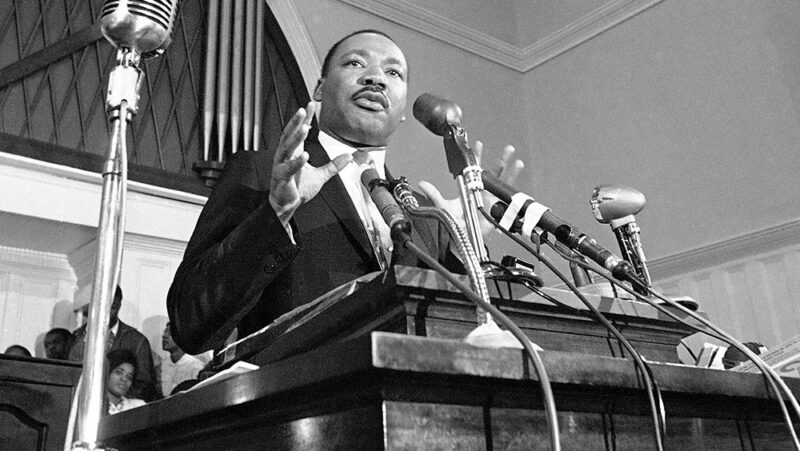Sacred Spaces Threatened: 3 Times Places of Worship Faced Barriers
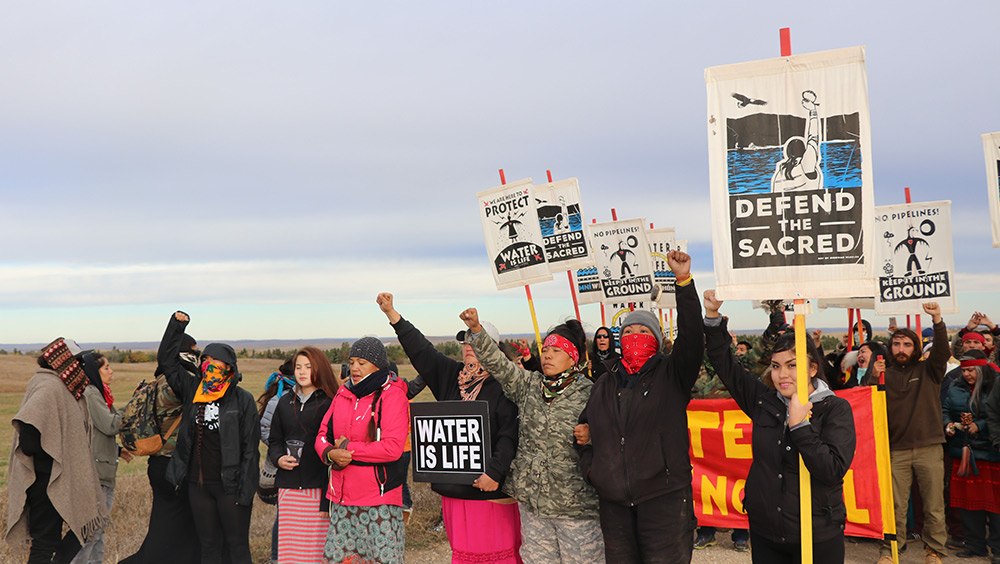
Faithful members of religious communities gather to practice their beliefs in all kinds of sacred spaces: churches, temples, holy mountains, synagogues, burial places, mosques and altars.
The First Amendment protects religious expression. But when it comes to holy places, all kinds of other laws and interests, like zoning requirements and oil demand, can come into play.
Sometimes, like in these three stories, minority religious communities faced obstacles to the use of their holy places.
Wicca church hit with permit problems
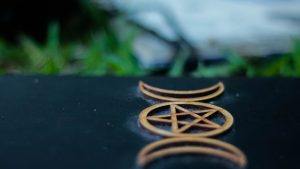
The “Triple Goddess” symbol of the waxing, full and waning moon.
Gail McHugh and her husband Darrel Moore’s Horn and Cauldron, Church of the Earth had been gathering to worship on its 13-acre farm outside Coventry, R.I., for seven years.
Then, in 2020, the town started raising a stir, questioning the Wiccan community’s religious tax exemption. The town also raised zoning issues about parking and fire safety, for which advocates for the church said there was no evidence.
The city required expensive inspections, which the church passed, but the city still denied the permits, saying using the land for religious purposes was not allowed under the town’s zoning laws.
With help from the ACLU, the church continued to petition for the right to use its land for worship and was finally approved in October 2022.
“We love our neighborhood, and the Church will continue to be a positive force in our community and world.” — Gail McHugh, Horn and Cauldron, Church of the Earth high priestess
Islamic Center’s mosque faces backlash
The Muslim community in Murfreesboro, Tenn., had initial approval from the city and had begun construction on its new mosque and community center in November 2009 when the backlash began.
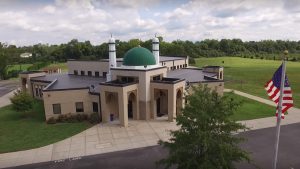
The Islamic Center of Murfreesboro in Murfreesboro, Tenn.
The construction site was vandalized. Neighbors protested. People claimed Islam shouldn’t receive First Amendment religious freedom protections. Some residents sued, and a judge ruled that the mosque required more public notice and comment time than did area churches.
With help from the U.S. Department of Justice, the Islamic Center pushed back against this discrimination and petitioned for the right to build and use its house of worship.
The Muslim community won its case, and now people of all faiths can practice in Murfreesboro.
“I am welcomed, and my community is welcome. We are just as American as anyone else.” — Dima Sbenaty, mosque member
Standing Rock Sioux holy places threatened
Water is a sacred part of worship for many religious communities, including many Indigenous and Christian traditions.
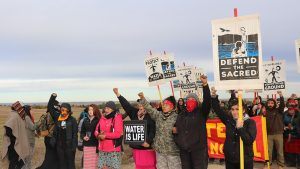
Standing Rock Sioux Tribe supporters protest the Dakota Access Pipeline.
But Native American tribes’ spiritual practices — like “Mni wiconi” (water is life) and holding certain lands and burial sites as sacred places — were banned in the U.S. for more than 50 years until the American Indian Religious Freedom Act was enacted in 1978. And yet, they still aren’t always protected.
When the Dakota Access pipeline, an underground oil pipeline across North and South Dakota, was approved in January 2016, the Standing Rock Sioux protested, saying the construction would destroy their ancestral burial grounds and poison the water supply of their nation.
Federal laws require government agencies to consult with tribes about the potential effects of drilling, mining or construction projects before approving them, but protecting Indigenous sacred spaces isn’t always prioritized.
Despite ongoing protests, including a Dec. 4, 2016, interfaith prayer service with Muslims, Hindus, Catholics, Unitarians and many more, led by Chief Arvol Looking Horse, the pipeline was completed in 2017.
“Now we exercise our freedom of religion in our way, which is peaceful in prayer.” — Phyllis Young, Oceti Sakowin (Seven Council Fires) protest encampment coordinator
25 Black Civil Rights Activists Who Used the Power of the First Amendment
Related Content
